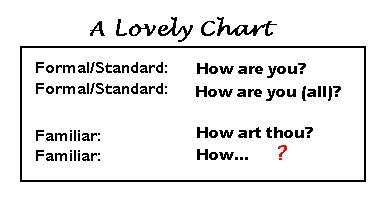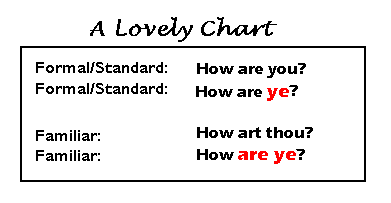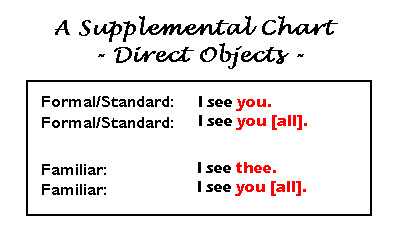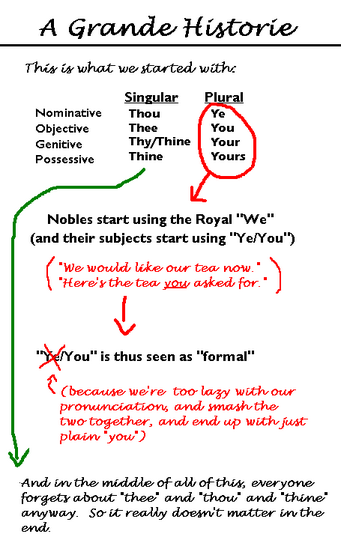Anyhow.
Making Light had a quite excellent Credo entry a while ago. I've got a qualm or two about some of the points...but for the most part, it communicates, far more eloquently and poetically than I could, the way I've seen and experienced Christianity.
Partly because of Making Light, and mostly because I've had trouble communicating exactly what I mean when I say "I'm a Christian," I'm attempting this entry.
My initial answer to that question is generally, "Umm...go look at Nicea. Or some of the other early ecumenical creeds."
The Nicene Creed
I believe in one God,
the Father Almighty,
maker of heaven and earth,
and of all things visible and invisible;
And in one Lord Jesus Christ,
the only begotten Son of God,
begotten of the Father before all worlds,
God of God, Light of Light,
very God of very God,
begotten, not made,
being of one substance with the Father;
by whom all things were made;
who for us men and for our salvation came down from heaven,
and was incarnate by the Holy Ghost of the Virgin Mary, and was made man;
and was crucified also for us under Pontius Pilate;
he suffered and was buried;
and the third day he rose again according to the Scriptures,
and ascended into heaven,
and sits on the right hand of the Father;
and he shall come again, with glory,
to judge both the quick and the dead;
whose kingdom shall have no end.
And I believe in the Holy Ghost, the Lord and Giver of Life,
who proceeds from the Father [and the Son];
who with the Father and the Son together is worshipped and glorified;
who spoke by the Prophets.
And I believe one holy catholic and apostolic Church;
I acknowledge one baptism for the remission of sins;
and I look for the resurrection of the dead, and the life of the world to come.
AMEN.
But I've found people generally don't accept this as a sufficient reply. So here's Nicea rephrased in one of the ways I've come to grapple with it and understand it. And hopefully in a way that's not too close to heretical:
This God exists -- he's good, he's perfect...you know the drill. That's really saying a lot, but stay with me.
He didn't have to, but for some reason he created all this -- the earth and galaxies and universes and gravity and dark matter. And apparently other things, like himself, that I can't really see with my eyes or hit with my hand. Like angels, I suppose...all that sort of thing.
And apparently he's got this son -- sort of -- who's him, but not quite him. What exactly this son is, and how he's related to this God has caused a lot of confusion in the past, so I'll just go with "begotten of the Father before all worlds, God of God, Light of Light, very God of very God, begotten, not made, being of one substance with the Father." It's an amazing image, actually, but no one word picture analogy has ever perfectly hit it exactly right.
Whoever this son was, he became incarnate. (Which is a cool word, so I'll keep using it). It's honestly hard to get a hold of how weird and unthinkable this is. This is God -- the infinite, perfect, unfathomable, uber-beyond our reckoning being -- becoming corporeal and one of us. But still being himself. The God-man. Logos become flesh.
Honestly -- if there was ever a focal point place in the streams of reality and history, this is it. Creator entering creation. Time and space bent in towards this point. Or shattered by it.
Aside from it being mind-blowingly awesome, though -- why'd he do it? You'd probably have to ask John and Paul and Anselm and Abelard and Aquinas and Lewis and all three branches of Christianity for the full discussion on all this. At the very least, maybe to show us his perfect and infinite himself-ness in a way we could understand. Or to live a life that gave us an example of how we should live. Or maybe to validate his creation and say "it is good."
The whole "for our salvation" deal seems to be the kicker, though. And it sort of implies a lot of things. Like that we need to be saved. That we, and maybe the world, too, are damn screwed up. That somewhere along the line, whatever this good and perfect and awesome God created (reflecting his goodness and perfection), stopped being those things. It got messed up and corrupted.
And he came to fix it. Apparently this involved incarnation, suffering, and death. And also rising up and being un-dead. (Maybe I need to change my shatter-focal-point, here. This God-person DYING is a rather big deal). Why did it involve all this? All the above people have made attempts at answering this, too (and very worthwhile ones). All the Credo says is that it happened, that it involved all these things, and that it worked.
Or at least that it started to work, because apparently it's not some sort of one time cure-all that puts everything back to the default setting. That would be amazingly awesome, but, dammmit, it didn't work that way. It's more like an initial, shattering blow -- one of those things that people look back on as the turning point in a war. The time the bad guys got blasted and scattered. Or maybe it's also something like the start of a viral infection. A good one, though.
Which is what this "church" thing ties into, apparently. It's the people who look at this and say "heck -- I want to be a part of this! I sure as hell need to be fixed, this world in all its pain and misery and ugliness sure as hell needs to be fixed...let me be a part of this. Let's renew this place!"
This "Holy Spirit" is a part of how it all works, too -- he's involved in the renewing and reshaping of these people, in a way that wasn't quite possible before the incarnation events happened. (Again, there's been lots of confusion as to exactly how he's related to the Son and the Father. It's more of the "him -- but not quite him" deal, and I'm not going to mess too deeply with it).
Anyhow. The church-people, even with the help and the renewing and the guidance, will often still screw up and still get it wrong. They'll lose sight of how we're supposed to be doing the rebuilding and glorifying and setting right -- labeling some things evil that aren't, and confusing a messed up thing with the messing up itself. Or forgetting that it's not by the sword that we can ultimately fix anything, because this place wasn't screwed up by the sword.
But still working toward the renewing and the rebuilding and the fixing -- at least headed in the right direction.
Then there's the "resurrection of the body" part, and the "life everlasting part", and the "kingdom with no end" part -- basically meaning that all this doesn't end with death, but keeps on going.
And you're looking at all this -- hell, I'm looking at all this -- and saying "that's crazy!" Because a lot of this is pretty whacked out, and though you can certainly get some it from looking at the world around you, it would be pretty damn hard to get the whole picture that way. People will notice part of it, and will try to articulate and explain it. But this is a screwy, messed up world, and our brains are damn well limited, and it's no wonder we confuse it and get it wrong.
The fact that this God did tell us a bit about the way things are definitely helps. Though there's still the limited, marred mind that gets in the way of understanding it all.
Whatever people make of whatever knowledge of all this they have -- I'll leave that to God to sort out. He will, eventually...the whole judgment part. Right now, I'm mostly just worried about how to live up to whatever it means to be "a part of this." It's already forced some pretty major re-thinking and re-prioritizing on me, and I don't see it stopping anytime soon.
Tada.
I'll probably end up going back and editing this a couple times, soon. But I wanted to get the basic gist of the matter up as soon as I could.
Also note that this is pretty much a "what" entry, not a "why" one. "Why" is a heck of a lot more complicated; nailing down the "what" is enough difficulty for one day.




